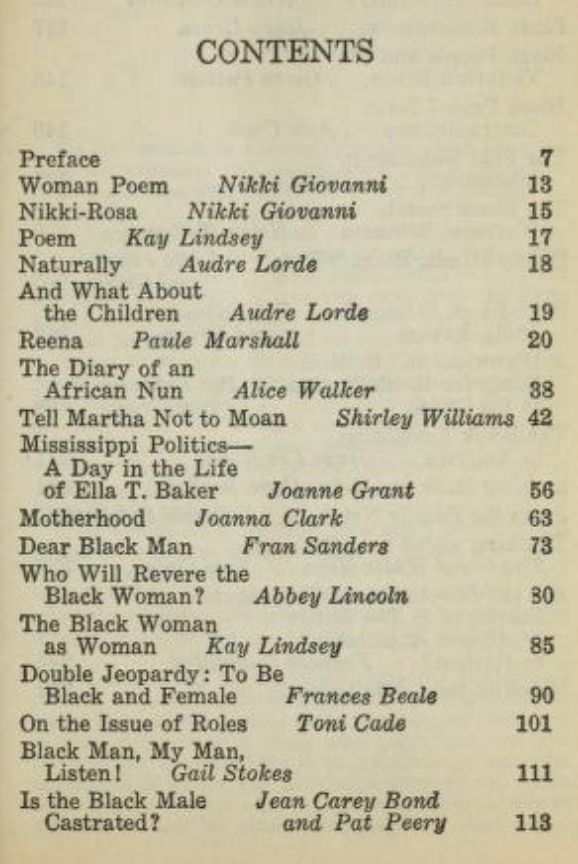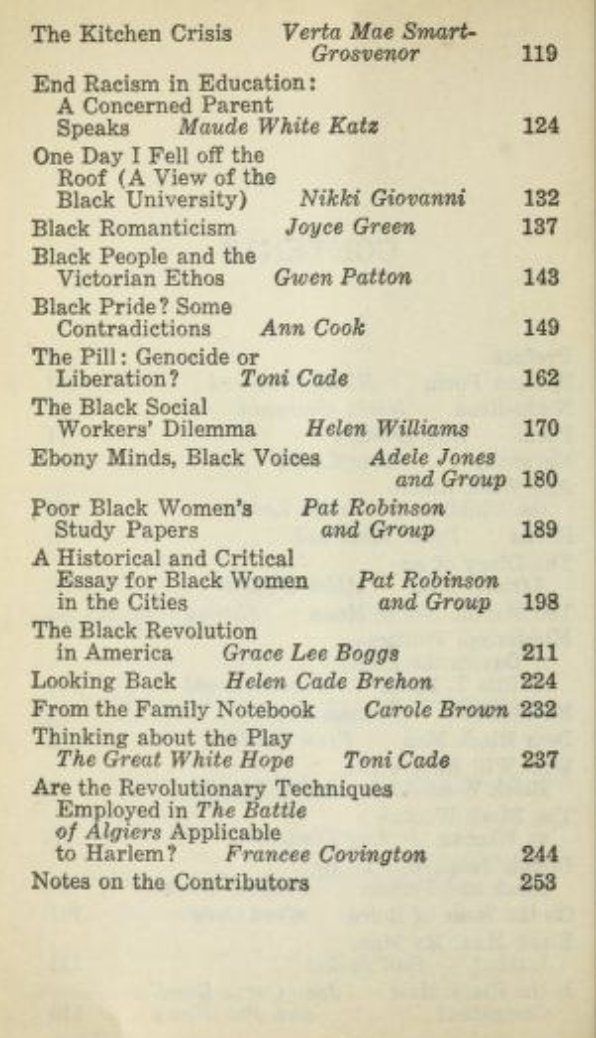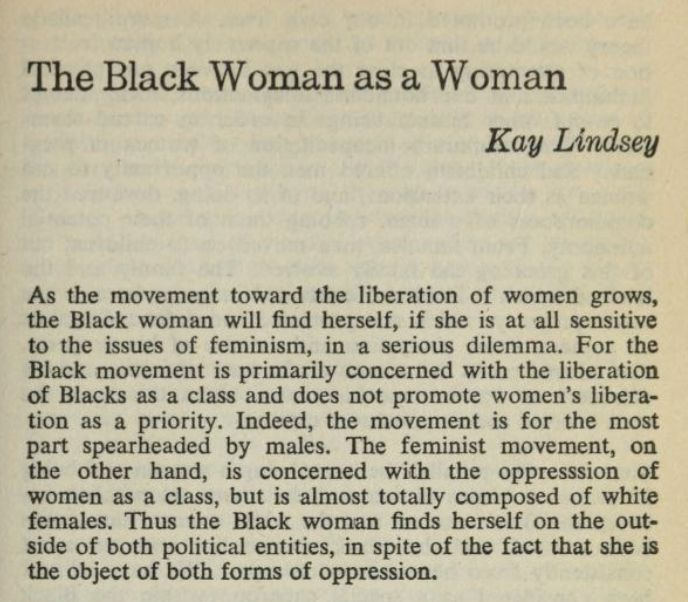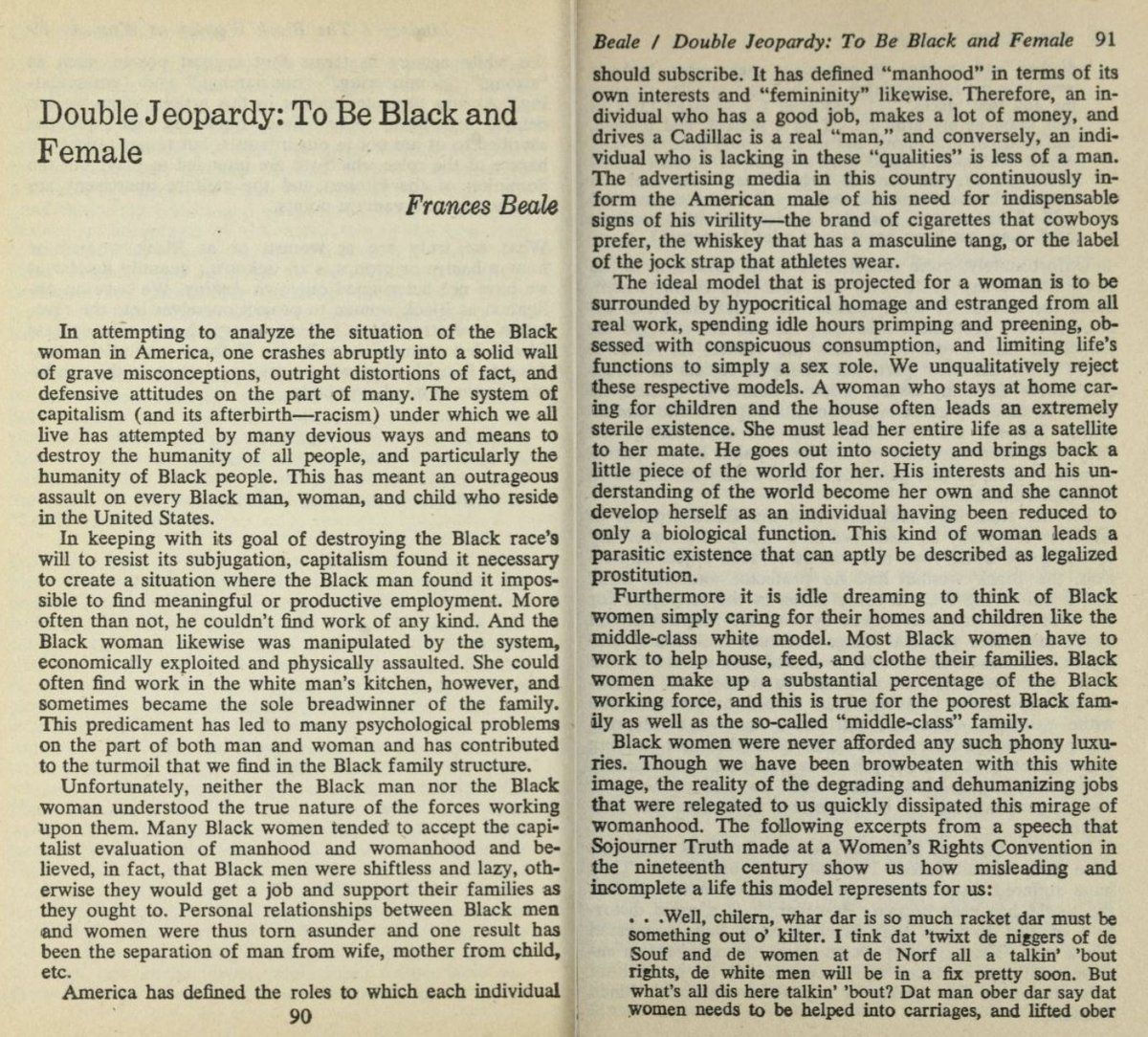-
Advice to academics: competent citational practice should lead you to cite the Combahee River Collective statement (1977) and other Black feminist texts when thinking through intersectionality and identity politics. @CarwilBJ/1462812157213609992
-
CRC statement: “We also often find it difficult to separate race from class from sex oppression because in our lives they are most often experienced simultaneously. We know that there is such a thing as racial-sexual oppression which is neither solely racial nor solely sexual”
-
See also: Audre Lorde, "Age, Race, Class, and Sex: Women Redefining Difference" (1980/84); Angela Davis, _Women, Race, and Class_ (1981/83).
-
So it is deeply galling to encounter readings of intersectionality that treat it as a diversion from class politics.
-
Combahee statement: “we are actively committed to struggling against racial, sexual, heterosexual, and class oppression, and see as our particular task the development of integrated analysis and practice based upon the fact that the major systems of oppression are interlocking.”
-
For a synthetic intersectional theory not crafted by Black women, but the combined authorship of seven white and Black socialists, anarchists, feminists, there is Liberating Theory (1986). archive.org/details/liberatingtheory00albe




